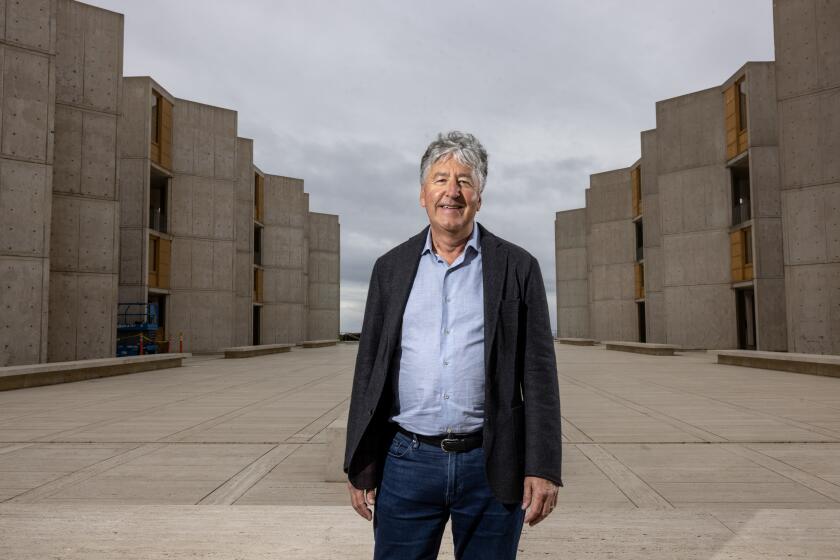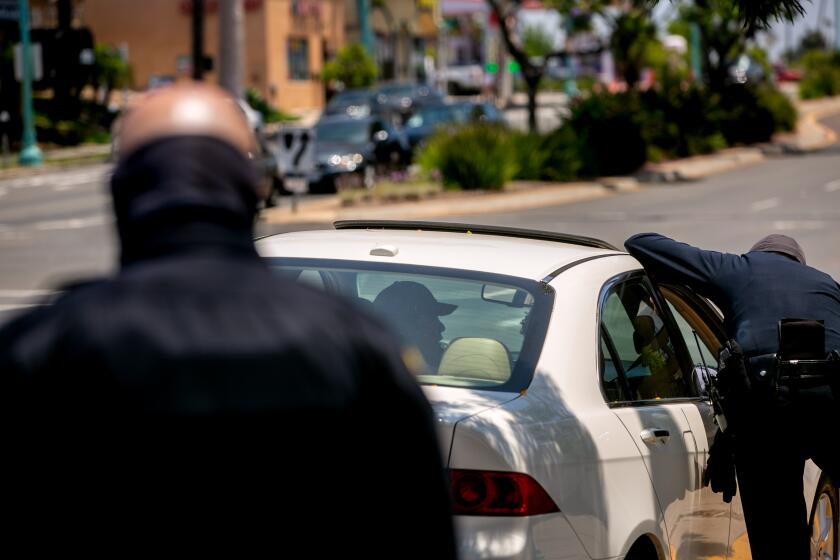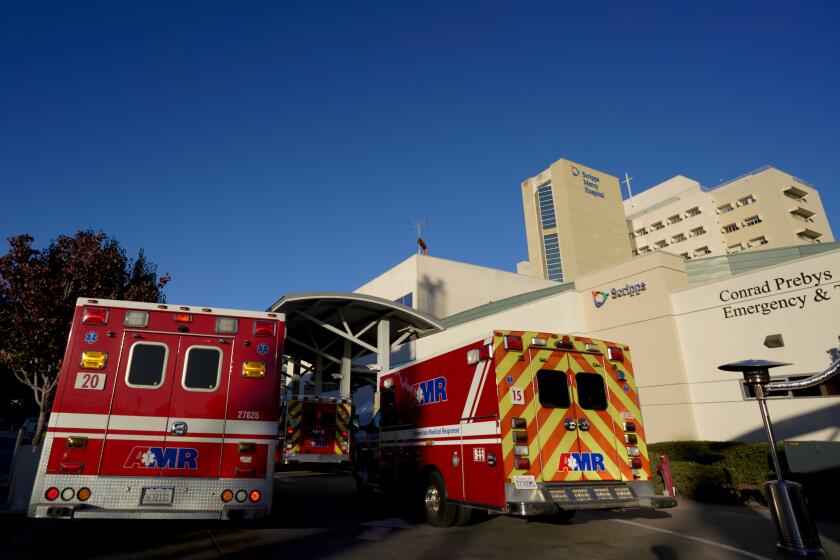Del Mar Fairgrounds ready to rethink entire property
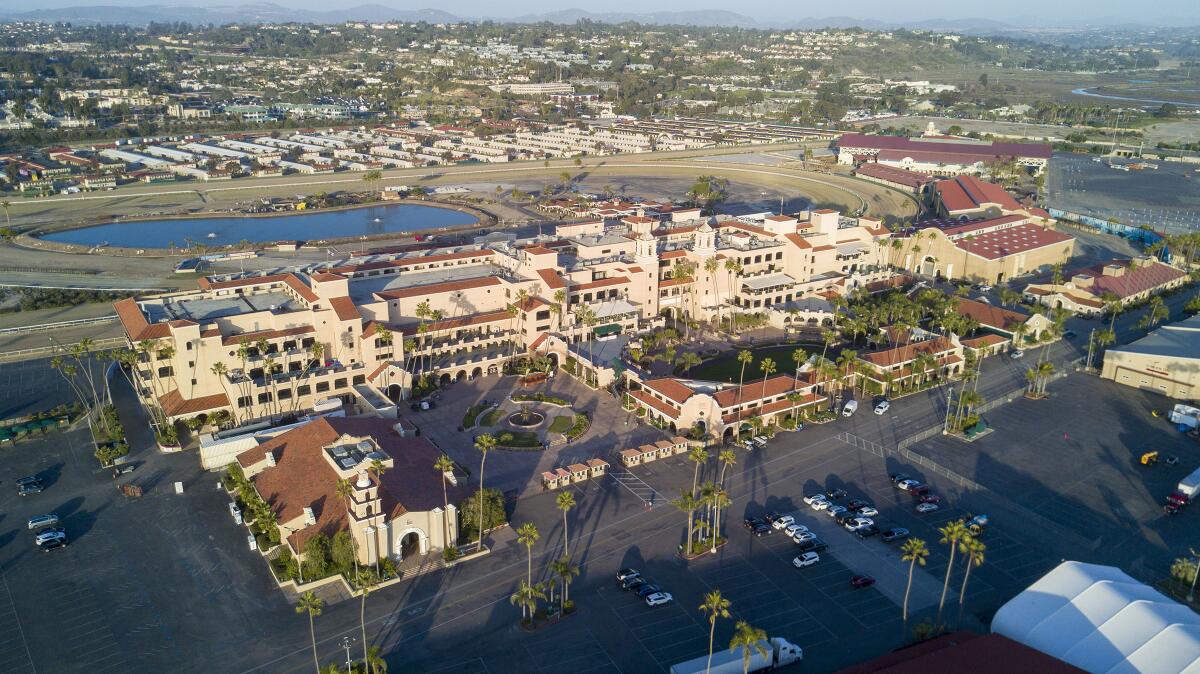
- Share via
The future of the Del Mar Fairgrounds will start to take shape in 2023 with the state agency in charge of the land that spans the main campus and beyond leaning on a real estate consultant to figure out how best to use — and profit from — all 324 acres under its management.
The 22nd District Agricultural Association, which manages the fairgrounds on behalf of the state of California, announced in a published notice last week that it plans to hire real estate consultancy London Moeder Advisors to identify the best use of its facilities. The state agency’s nine-member board will consider approval of the contract, which contemplates a one-year term with two optional, one-year extensions, at its January meeting.
This story is for subscribers
We offer subscribers exclusive access to our best journalism.
Thank you for your support.
The work is meant to inform a future master-planning effort that could take years to complete, Carlene Moore, who is CEO of the agency, told the Union-Tribune on Wednesday.
“I think this is an incredible step, for us as an organization, of looking to and planning for the future, and helping to make sure that we’ve created a space that is inclusive of everybody in San Diego County,” Moore said. “Don’t worry, nothing is changing overnight. ... This is a process. This is one step in that process. With that being said, let’s all be open to the possibilities.”
The 22nd District Agricultural Association, which produces the annual San Diego County Fair, is weighing what to do with an expansive real estate portfolio that spans three different sites, including the 212-acre main campus along Via de la Valle, at the mouth of the San Dieguito River between Interstate 5 and the Pacific Ocean. The agency also operates the 48-acre Surf & Turf recreational area opposite Jimmy Durante Boulevard, home to a tennis club, RV park and driving range; as well as a 64-acre equestrian center, known as the Del Mar Horsepark, that is two miles east of the fairgrounds.
The land, while not subject to local zoning restrictions, is complex in nature, given its proximity to water and wetland habits. The California Coastal Commission has jurisdiction over improvements.
In late 2019 and early 2020, the board started a strategic planning initiative that soon took a backseat to staying afloat during the pandemic, as restrictions crippled the self-funded organization’s ability to host large, money-making events. The visioning effort was picked back up in 2021. In October, the district issued a request for proposals for a “highest and best use feasibility consultant.”
London Moeder, according to its winning bid, will study the demand and financial prospects of residential units, retail shops, office space and multiple accommodation options across the three different sites managed by the district. The firm is teamed with development consultant David Malmuth, Perkins Eastman Architects and Spurlock Landscape Architecture on the endeavor.
“We will establish conclusions and recommendations as to which land uses can succeed, at what scale, when and how to phase, and best locations throughout the 212-acre main campus Del Mar Fairgrounds, the 48-acre Surf & Turf Recreational Facilities campus, and the 64-acre equestrian center campus Del Mar Horsepark,” firm principal and project lead Gary London wrote in the proposal. “Throughout, we will be cognizant of how to achieve these (objectives) for land use development while maintaining and, ideally, enhancing your existing service, events and land uses.”
When reached for comment, London declined to discuss the fairgrounds proposal pending contract approval.
London Moeder is a frequent advisor to private developers and public agencies, and recently worked alongside the San Diego Padres and its partners to come up with a development plan for Tailgate Park. The firm was also hired by the Navy and the San Diego Association of Governments in 2019 to recommend a development approach for the Navy’s NAVWAR facility in the Midway District, when the agencies were still jointly contemplating a central mobility hub.
As for the future of the fairgrounds and adjacent district properties, it’s still early days — although everything but the fair itself is potentially fair game, and even that could be moved to a new location.
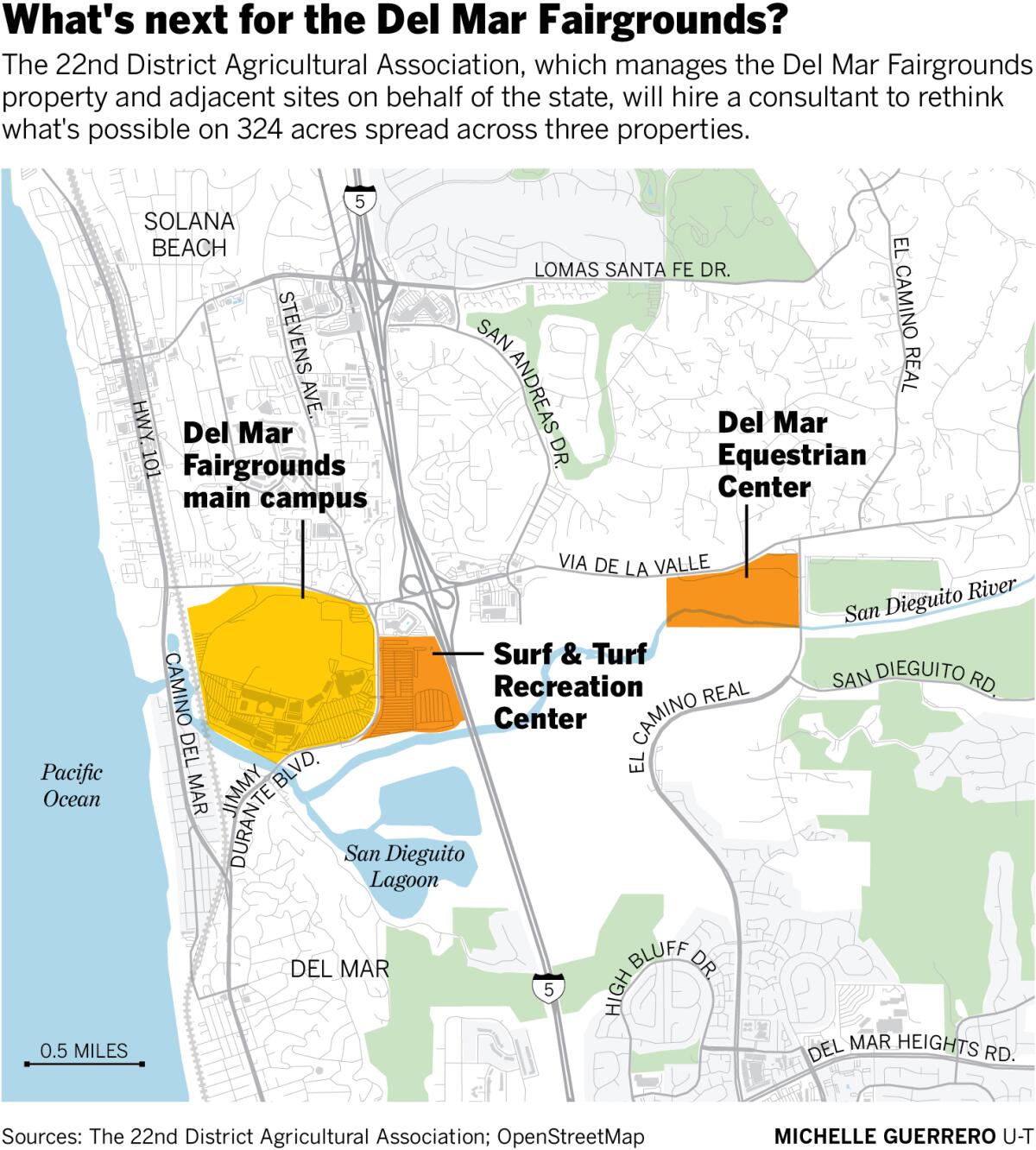
“The one requirement we have is to put on the annual fair,” Moore said, adding that the district hasn’t put together a list of what else might stay or go. “We’re just really open. That’s why we’re bringing in London Moeder ... to help do that analysis.”
Horse racing, while less in fashion because of increased attention on animal welfare, is still an important part of the organization’s current business model. Each year, the Del Mar Thoroughbred Club pays $1.2 million in rent. In addition, food and beverage sales associated with horse racing net the state agency another $3 million, Moore said. As it stands, there is no plan for horse racing to go away, she said.
If there’s a certainty, it’s that money-making prospects are of the utmost importance.
“Pre-pandemic, we thought of ourselves as being diversified. We have the fair. We have horse racing. We have other events and rentals where third-party promoters come in and put on activities. We also have the recreation center aspect,” Moore said. “What we learned at the outset of the pandemic was we weren’t as diversified as we thought we were because ... 95% of our revenues come from mass gatherings.”
The organization’s financial health, which was on life support in 2020, is on the mend.
The district expects to report a loss of $17.7 million for 2020, according to a draft audit presented to the board last month. This year it has fared better than expected, even though 2022 fair attendance was lower than in years prior to the pandemic. As of Sept. 30, the state institution has made $18.8 million in profit, recent records show. Still, its long-term debt and payroll obligations are substantial, totaling $118.6 million.
On the immediate horizon, the Del Mar Fairgrounds will open its $17-million concert venue, called the Sound, in February. The new, 1,900-capacity venue is at the northeast corner of the Del Mar Fairgrounds. It occupies what was the site of the Race Place off-track betting facility. The 22nd District Agricultural Association also expects its equestrian center, closed since January 2021 for water quality work, to reopen this summer.
More to Read
Sign up for Essential California
The most important California stories and recommendations in your inbox every morning.
You may occasionally receive promotional content from the Los Angeles Times.





